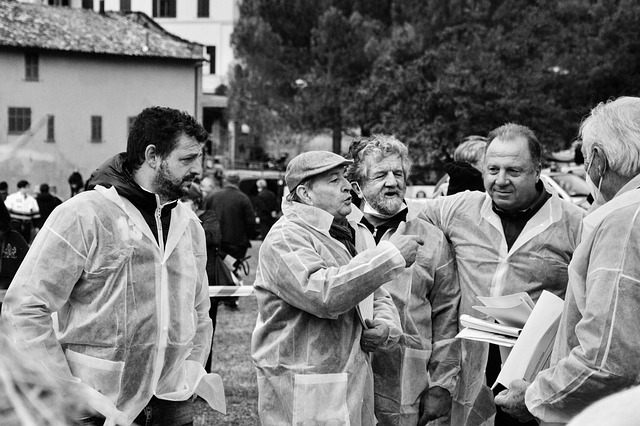Probate is a complex legal process managing deceased's asset distribution guided by their will or intestacy laws. It involves challenging tasks like accurate valuation and fair distribution, adding emotional strain on family members. Estate distribution requires careful consideration of testator's wishes while adhering to legal requirements to prevent disputes. Navigating jurisdiction-specific probate laws, interpreting documents, managing taxes, and ensuring compliance is crucial for smooth transfer. Professional guidance is essential to avoid complications and disputes during this sensitive time, especially with complex assets like properties, businesses, or investments. Family conflicts can be resolved through mediation, preserving relationships. Legal experts specializing in estate distribution ensure efficient, timely, and mutually agreeable asset allocation according to the deceased's wishes while protecting rights and offering peace of mind.
Probate can be a complex and emotionally charged process, often fraught with legal challenges. Understanding the intricate steps and potential hurdles is crucial for a smooth transition of assets. This article guides you through various aspects of probate, from grasping fundamental processes to tackling specific issues like complex asset transfers and contentious family disputes. We explore key strategies, emphasizing the importance of professional legal counsel in navigating estate distribution efficiently and effectively.
- Understanding Probate Processes and Their Challenges
- Navigating Estate Distribution: Legal Frameworks
- Complex Assets: Strategies for Smooth Transfer
- Disputes Arising: Resolving Family Conflicts
- Time-Sensitive Matters: Expediting the Process
- Professional Guidance: Choosing the Right Lawyer
Understanding Probate Processes and Their Challenges

Probate is a legal process that can be complex and time-consuming, often involving intricate details related to an individual’s estate. It involves the administration and distribution of a deceased person’s assets according to their will or, if there is none, the applicable laws of intestacy. The primary challenge in probate lies in ensuring the accurate valuation and fair distribution of the estate, especially when dealing with substantial assets or complex financial arrangements.
This process can be particularly demanding for family members left behind, who may already be dealing with emotional trauma. They must navigate legal procedures, understand their rights, and fulfill obligations to creditors and beneficiaries. Estate distribution, a crucial aspect, requires careful consideration to honor the testator’s wishes while adhering to legal requirements, ensuring fairness and avoiding potential disputes among heirs.
Navigating Estate Distribution: Legal Frameworks

Navigating the complex landscape of estate distribution requires a solid understanding of legal frameworks. Each jurisdiction has its own set of rules and regulations governing how assets are divided among beneficiaries after a person’s death, often referred to as probate laws. These laws ensure fairness and order in the disposition of an individual’s estate.
Estate distribution is a meticulous process involving careful interpretation of wills, trusts, and other legal documents. It demands expertise to manage tax implications, identify and protect assets, and ensure compliance with applicable laws. Professional guidance is crucial for individuals and their families to avoid legal complications and potential disputes during what can already be an emotionally charged time.
Complex Assets: Strategies for Smooth Transfer

When it comes to complex assets in probate, a strategic approach is essential for ensuring a smooth transfer and efficient estate distribution. This often involves specialized knowledge and expertise to navigate the legal intricacies surrounding valuable properties, businesses, or investments. A comprehensive strategy may include identifying all assets, evaluating their unique characteristics, and developing tailored solutions for each. For instance, real estate holdings might require careful consideration of market conditions and potential buyers, while business interests may demand a structured plan for succession or liquidation.
Professional guidance is invaluable in these situations, as it can help to streamline the process, minimize legal complications, and maximize the value of assets ultimately transferred to beneficiaries. By employing sophisticated strategies, such as structured settlements or creative financing options, it’s possible to facilitate a seamless transition, ensuring that all parties involved receive their rightful share of the estate distribution in a timely manner.
Disputes Arising: Resolving Family Conflicts

Family conflicts can often arise during probate, especially when it comes to the distribution of an estate. These disputes may stem from differing opinions on the will’s validity, disagreements over personal belongings, or contentious decisions regarding assets and property. Resolving these conflicts is a delicate process that requires skilled legal guidance.
Mediation and alternative dispute resolution techniques can help families navigate these challenges. By fostering open communication, these methods allow for collaborative problem-solving, ensuring everyone’s voice is heard. This approach can be particularly beneficial in preserving family relationships while reaching a mutually agreeable solution regarding the estate distribution.
Time-Sensitive Matters: Expediting the Process

Probate legal issues often involve time-sensitive matters, especially when it comes to distributing an estate. The process can be complex and lengthy, but professional support is crucial in expediting these matters. Legal experts specializing in probate can navigate the intricate regulations and procedures, ensuring that assets are distributed efficiently and according to the wishes of the deceased.
By involving a competent attorney, individuals can avoid costly delays and potential legal pitfalls. This support is particularly vital when dealing with contested estate distribution or complex financial matters. With their expertise, lawyers can guide clients through every step, promoting a smoother transition and providing peace of mind during what can be an emotionally challenging time.
Professional Guidance: Choosing the Right Lawyer

When navigating complex probate legal issues, seeking professional guidance is paramount. Choosing the right lawyer specialized in estate distribution ensures that your interests are protected and that your loved ones’ wishes are respected throughout the process. This is crucial, especially when dealing with intricate matters such as contested wills, trust administration, or tax implications, where a seasoned attorney can offer invaluable insights and expertise.
A competent probate lawyer will possess in-depth knowledge of local laws, be adept at interpreting complex legal documents, and have a proven track record of successfully resolving estate disputes. Their support is instrumental in ensuring that the estate distribution process is handled efficiently and in accordance with legal requirements, allowing you to focus on grieving and maintaining stability during this challenging time.






